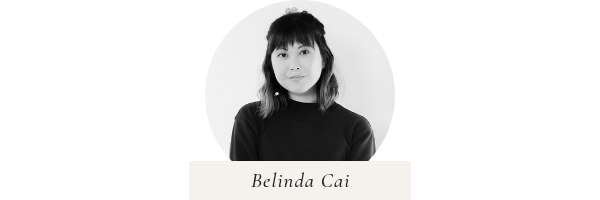
A Letter To Liberal Arts Majors (Your Work Matters)
Dear college student,
As someone who’s struggled with mental illness from a young age, studying psychology in undergrad was transformative for me. For the first time, it felt okay to be neurodivergent. I began to better understand myself and the world around me. It was a subject that consistently provoked me—I couldn’t get enough.
“There’s a stigma in choosing to study liberal arts, whether that’s psychology or English or history or fine art.”
And then, in the midst of happily choosing to study this, I heard it for the first time: “Oh, psychology? That’s a slacker major.” It didn’t end there. It was the first judgmental comment of many more to come. “Good luck with getting a job!” The comments didn’t dull my love for the subject, but eventually made me self-conscious.
From then on, I felt a tinge of shame every time I’d tell someone what I was studying. Especially when my double major was in philosophy—another subject that captivated me but was considered impractical by some. I’d quickly follow up with, “But I’m going to grad school, so I’ll do the hard work later.”
There’s a stigma in choosing to study liberal arts, whether that’s psychology or English or history or fine art. They’re not what’s considered “money makers”—in fact, the stereotype is that they create starving artists, overeducated baristas, and unemployed dreamers. In a capitalist society, this is indeed a shame. In an ideal society, even the dreamers have a role.
From my parents to classmates, it seemed the consensus was that STEM majors, hard sciences, and business majors were the way to go. Those are the majors that cultivate engineers, scientists, doctors, and CEOs—the careers of prestige and profit. Those are the respectable majors, I was told.
I quickly internalized this belief and doubted myself. Was I going to be able to get a job after graduation? Was I wasting my education? Was I going to be able to make a difference one day? Should I be studying something more practical? I held onto the belief, in those four years, that I was making a poor decision. But I stuck with it.
“Liberal arts has done more than educate me: it’s shaped me into who I am.”
What I didn’t realize is that, while I wasn’t always gaining skills to do one particular job, I was expanding my mind in meaningful ways. Studying liberal arts taught me to think critically, understand broad and important concepts, write effectively and efficiently, be a better thinker and speaker, and be more empathetic.
It’s done more than educate me: it’s shaped me into who I am. I wouldn’t trade that for anything.
A recent Medium article, “Forget STEM, We Need MESH,” highlights the importance of media literacy, ethics, sociology, and history education. The author, Tim Wise, writes that we are so obsessed with STEM that “we’ve neglected some other areas that are at least as important, if not more so.”
STEM is, of course, necessary, but it’s not the be-all-end-all. “Without an equal commitment to comprehensive civics education—an examination of subjects that touch on the relationships between people, government, the economy, and media—all the technical know-how in the world will be for naught,” Wise continues.
“For this reason, I would suggest a renewed focus on MESH education…Because if these are not given equal attention, we could end up with incredibly bright and technically proficient people who lack all capacity for democratic citizenship.”
“Art has worth. Creativity has worth. Effective communication has worth.”
Wise is right: STEM and MESH go together like yin and yang. In any given society, both are needed. STEM jobs matter, for innovation and societal advancements. We all already know this. But those aren’t the only jobs that have worth.
Art also has worth. Creativity has worth. Effective communication has worth. Ideas that challenge the norm have worth. Bringing together and helping people has worth. These are all outcomes of studying social sciences, humanities, creative arts, and soft sciences, the beautiful categories that make up liberal arts.
Because what’s the point of having successful leaders if they aren’t kind, imaginative, and empathetic? Leaders who support a fair and egalitarian society? What’s the point of success, in general, if we feel stifled and can’t be the creative, free humans we inherently are? If we can’t find our worth outside of our jobs and careers?
And the thing is, you will find a job. Recent reports prove this. Your career path does not have to be—and probably will not be—a straight line. In the years to come, you’ll explore inside and outside of your field. Life experiences will guide you to a career that’s right for you. It may not be what you expect when you first start your education, but you’ll feel fulfilled when you get there.
“Liberal arts majors matter because they will prepare you for not just one job, but for any job.”
Liberal arts majors matter because they will prepare you for not just one job, but for any job. The skills you learn studying English and history and philosophy and anthropology are irreplaceable and will lead to an eternity of learning—not just in the classroom or on the job, but in life. And that may be where learning is most necessary.
So liberal arts majors, what you’re studying is not useless. Don’t let anyone tell you otherwise.
Love,
Belinda
RELATED READING
Belinda Cai is a multimedia journalist who frequently writes about lifestyle, social and environmental justice, and identity and culture. She has a master’s in journalism and communications from the University of Southern California, and hails from Cincinnati, Ohio. When she’s not writing, she’s Wikipedia-spiraling, staying active, enjoying nature, and thrifting. Check out her website and Instagram.

